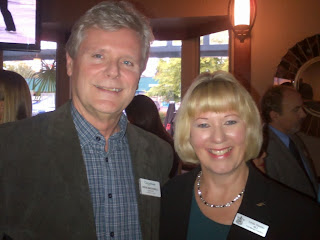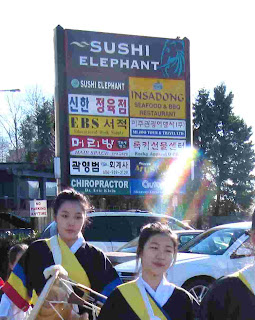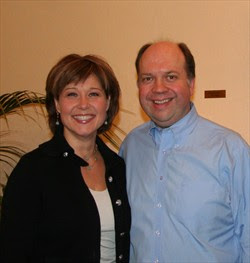One of my colleagues on Coquitlam Council is in the news today, complaining that he was the only Coquitlam Councillor, who attended the big Federation of Canadian Municipalities conference in Vancouver that has just wrapped up, who chose to commute to the event rather than stay in a hotel downtown.
His complaint is getting a lot of traction, judging by the comments that follow
this story on CKNW's website.
Since I am one of the five Council members who chose to stay downtown for three nights, I feel I must get several things on the record and provide some context.
First: this is the second such conference I have attended in a month. A few weeks ago, I travelled to Harrison to attend the Lower Mainland Local Government Association's annual convention. As well, I did not attend last year's FCM conference in Saskatchewan, and so this was my first FCM convention.
Second: Since it was taking place in Vancouver, I considered it my public duty to attend this conference, to attend the speeches, to study the resolutions, to vote on the resolutions, to attend as many of the seminars as I could, to vote for delegates and representatives, and to attend the many evening receptions that are hosted by industry representatives and other cities.
Third: Given that attendance at these conventions is not mandatory, I suppose I could have acted selfishly and or lazily and chosen not to attend--spending my time at home to work on my own personal business, visit friends and family, or simply relax and recreate. This past weekend would have been a great one for a walk in Mundy Park or a ride along the PoCo trail, but I spent it indoors, instead, at the FCM.
I could have also chosen not to stay for the evenings, but I was told (correctly, as it turned out) that these evening gatherings were important. My colleague who is complaining has been in public life for 40 years, and so most likely has all the political insights and acquaintances he will ever need, but this is just my second year in office, so I am still attempting to soak in as much information as I can.
Again, as I said above, I considered it my duty to fully participate in this conference. I will share, below, some of my notes from the FCM.
Fourth: As Mayor Richard Stewart has suggested in the CKNW story, it is next to impossible, from a physical stamina point of view, to attend all aspects of conference and also commute early in the morning and late at night. The agenda is simply exhausting. The official, working part of the events at the FCM typically started at 8 a.m. and concluded in the late afternoon. The receptions, social, and formal dinners took up the evenings well into the night. I found the networking and casual, unplanned discussions to be very important to the whole experience, providing new contacts, new insights and fresh ideas.
(Incidentally, while many out-of-town delegates took advantage of "study tours" throughout the convention, it is my understanding that our Coquitlam delegation did not enroll in any of the tours--such as "New Urbanism Bike Tour;" "Vancouver Heritage Tour;" "Housing Tour," "Port Metro Operations Centre Tour," etc.--but chose instead to attend the less-exciting my substantially more important working sessions.)
On Sunday, for example, I was at the convention hall at 7:45 a.m. for Green Party leader Elizabeth May's speech at 8:05 a.m. (on which I commented on my Facebook page). The day continued with a speech by Liberal leader Justin Trudeau, an award ceremony, the AGM (I lost count of the speeches) and election of officers of the FCM, then election of regional chairs; these tedious but necessary elections (complete with speeches from eight candidates and then a long delay because of a mechanical problem with a voting machine) lasted until well in the afternoon. I was very happy to have a hotel room to repair to, to allow me to refresh myself, change my clothes, and get ready to attend the final dinner, at which Councillor Craig Hodge played formal hosts to a table that attracted representatives from Winnipeg, Nakusp, and Saanich.
Yes, it was a lovely night, but it was yet another extremely long day that ended at 11 p.m. If I had started the day with a commute from Coquitlam, I don't think an exhausted, grumpy Terry O'Neill would have made a very good impression on my new acquaintances from the three aforementioned communities.
So, what benefit did my attendance at the FCM have? I will conclude this posting by sharing some of my rough notes from Friday and Saturday's events:
Friday
Extractive industries workshop
First presenter is from Teck, David Parker.
Mining operations have
to earn and maintain a Social Licence, not just a legal permit
Issues of
trust and Transparency .
Have to plan for end of project.
Six key
sustainability focus areas: materials stewardship, water, biodiversity, energy,
people at centre, community overall.
Re community: focus on community
benefit.
Corporate sponsorship presentation
Www.sponsorshipcongress.ca is October in Calgary. Also look to sponsorshipgroup.ca which specializes in
linking up minis and sponsors.
Brent@sponsorshipgroup.ca.
Munis
account for one third of their business now. They are consultants. Not doing the
sale.
In one building there can be hundreds of assets to sell rights to. U
can raise money without selling outright naming rights. Have to show value to
the buyers.
New stats: since 2006, the industry has grown 43percent. Even
thru recession.
A$1.6 billion industry in Canada. 20percent is spent
locally. The big boys may have one thousand properties. 70percent is cash.
30percent of brand marketing is in sponsorship or experiential
marketing.
Greatest growth has been in fairs festivals and annual events.
Sports is declining.
Don't do it ad hoc. Go All the way or not. Make sure you know what constituents want. In
Edmonton, eg, they were not OK with selling naming rights to exterior of park or
building, but OK with selling off inside bits and pieces... Procurement can
be integrated with sponsorship
U have to be in true partnership...be
concerned that the companies make their money.
The centre for excellence for public
sector marketing, exists.
One. Build case external and internal
Two.
Develop policy
Three. Asset I'd and valuation
Four. Procurement
policy
Five. Sales team external or internal? External to start, then
internal... All professionally
Rick Hansen
speech
Check into Planat app to rate facilities for accessibility.
James Moore speech
95percent of Nat Museum material is not on display. Moore wants to allow local museums to borrow and get access! Maybe Coquitlam can get fed
help for an actual museum!
Saturday
Delivering Smart Services session
Services and citizen interaction seminar sponsored by
CISCO. Ned is speaker, from Cisco.
How to put
technology to use to achieve public policy objectives.
two big ideas: a. the
Internet of everything; b. ubiquity of video
A. 99percent of things still
aren't connected. But people, process, data and things can be. IE process,
delivering the right info to make right decisions.
Even connecting tree to Internet
so u can monitor output of oxygen, need for water..
B. video changes the game
re how we interact with each other. Can we add Skype to town hall
meetings?
Cisco sponsors the video networking index. In Canada there will be
33million Internet users in four years.
We are using video at home. People
are going to start to expect same video in city services.
It's no longer
going to be enough to simply set up a website without a face to face
video.
There's no reason our staff can't meet with citizens, etc, using
video, if quality is outstanding and the security has to be
outstanding.
Cisco has remote site box that can be set up to provide face to
face video. Printer sign dox. Scan it and send it back. "you can consume a govt
service without having to go to a govt office."
Mayor of Newmarket
The
city tweets.
They have produced several videos, avlb on Internet website, to
explain and promote the city. (Coquitlam could do more or this). They reached out and communicated
on budget. Feedback from 1000 people thru social media.
Problem is how to
many multiple points of entry.
Also, customers are expecting 24 hr
service.
Info officer from Newmarket appears be video linkup
They have
a centralized customer service call centre. Service
requests can be sent to crews in the field, and they can msj back. System allows
for a full start to finish tracking. The original call receiver owns the call
start to finish. Thru this customer service initiative, front counter
positions were eliminated-shifted to customer service centre.
Idea for Coquitlam: A
direct one line connection to a city number, from which caller could select
numbers one to eight to select one councillor. It will connect directly to the
councillors cell phone.















